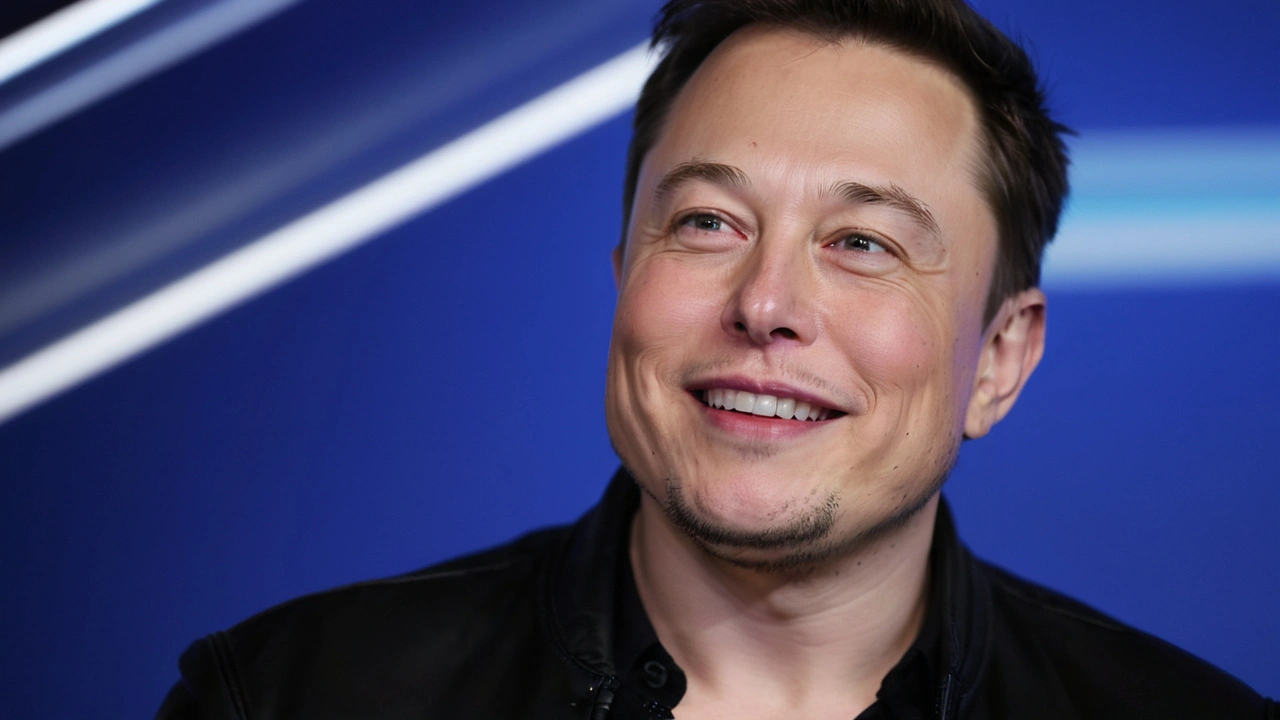
Elon Musk's Allegations Against Google
Elon Musk, well known as the CEO of Tesla and SpaceX, has found himself embroiled in a controversy regarding his latest claim about Google. Musk, who has been a vocal and prominent supporter of former President Donald Trump, recently accused the tech giant of potentially meddling in the U.S. presidential elections. This allegation arose when Musk posted a screenshot suggesting that searching for 'President Donald' on Google returned results like 'President Donald Duck,' rather than anything related to Donald Trump. Musk's post quickly gained traction, leading to widespread conversations and debates about the integrity of Google's search algorithms.
The Search Query Conundrum
In his post, Musk questioned whether Google had intentionally placed a search ban on Donald Trump. The seriousness of his claims cannot be overstated, given Musk's influence and the delicate nature of the ongoing elections. Musk's screenshot depicted an odd series of search results, which he alleged were evidence of Google's biased actions. 'If Google has truly done this,' Musk wrote, 'then they could face unprecedented consequences.' The implication was clear: Musk was suggesting that Google might be manipulating information access to influence voter sentiment.
Counterclaims and Quick Searches
However, it took only a short while for others to counter Musk's claims. A quick search for 'Donald Trump' in Google’s incognito mode revealed that the search engine was indeed functioning correctly, providing relevant results related to the former president. This immediate rebuttal cast doubts on Musk's allegations and raised questions about the purported screenshot's validity. Was it an isolated incident, a technical glitch, or an orchestrated attempt by Musk to sway public opinion?
Past Incidents of Tech Allegations
This incident is not the first time misinformation or claims about tech companies' political biases have surfaced. During the 2016 elections, several allegations were made against various social media and tech platforms allegedly influencing voters' opinions. With Musk's latest accusation, the spotlight is once again on the tech industry and its potential role in shaping democratic processes.
Musk’s Support for Donald Trump
The timing of Musk's allegations is also pertinent. Shortly before this accusation, Musk had publicly endorsed Donald Trump. This endorsement followed a tragic and violent shooting incident at a Trump campaign rally in Butler, Pennsylvania. During this rally, Trump was injured, while a spectator and the shooter lost their lives. Musk's support for Trump was well-publicized, especially as he made a significant financial donation to America PAC, a political action committee dedicated to ensuring Trump's election victory in the upcoming November elections.
Examining the Screenshot
Delving deeper into the screenshot that Musk shared, various experts suggest that it may not be an accurate representation of Google's search engine behavior. Screenshots can be manipulated, and results can vary based on numerous factors, including location, search history, or even transient technical issues. As of now, no concrete evidence supports Musk's assertion that Google placed a search ban on Trump. The tech community and political analysts alike are keenly observing how this controversy will unfold and its potential repercussions.
The Bigger Picture
Musk's claim, irrespective of its validity, underscores the growing divide between tech giants and influential personalities over issues of information access and political influence. As the November elections loom closer, incidents like these might become more frequent, with far-reaching implications for public trust in both technological platforms and political endorsements. Regardless of individual opinions, it’s crucial for all stakeholders to approach such allegations with a critical eye, seeking truth amidst the noise.
Public Reaction and Future Implications
The public's reaction to Musk's claim has been mixed. While some of his followers and Trump supporters are quick to believe the allegation, others call for a more cautious approach, emphasizing the importance of verifying facts before jumping to conclusions. The contrasting search results further complicate the narrative, making it a hot topic for debate. As the conversation continues, it’s vital for the public to maintain a balanced perspective, recognizing that allegations of this nature can have significant consequences if left unchecked.
Conclusion
In conclusion, Elon Musk's allegations against Google have stirred considerable controversy and highlighted ongoing tensions between influential individuals and tech companies. As the situation evolves, it remains to be seen whether further evidence will surface to support or refute Musk's claims. In a world increasingly reliant on technology for information, the integrity of our digital platforms and the motivations behind high-profile endorsements play critical roles in shaping public perception and, by extension, democratic processes.





